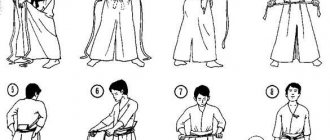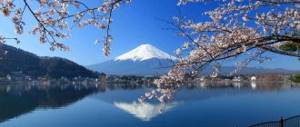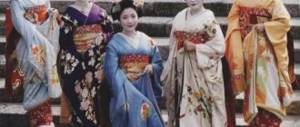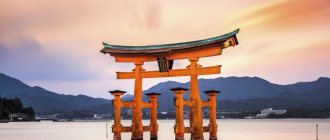State
The form of government in Japan is monarchy. The head of state is the emperor, and he is the only ruling emperor in the world. Emperor Akihito now rules Japan, and he is already the 125th ruler in Japanese history. The imperial dynasty of Japan is the oldest in the world; it has not been interrupted for many centuries, and the country itself does not know revolts against the ruler. This happens because the Emperor of Japan is considered a descendant of the gods, and rebelling against him means blasphemy, which is extremely unacceptable to the devout Japanese. Interesting facts about the country: the emperor is also a spiritual leader; he is the high priest of Shintoism, a religious movement widespread throughout the country. The emperor is not a real political force; the prime minister and government rule on his behalf. However, it performs important religious and representative functions.
The Japanese adapt everything they borrow
Japan seems to foreigners to be an amazing country where the latest technologies are incredibly combined with thousand-year-old traditions. A Japanese person is not averse to visiting fast food and eating a hamburger, but when he comes home, he will take off his shoes at the door and put on a kimono.
In Japanese culture there is a concept - Iitoko-dori - the art of borrowing. The Japanese took from other peoples only what they needed at a given historical moment. They do not seek to copy other people's technologies or cultural achievements, but carefully study and adapt them. Therefore, with minimal natural resources, they were able to achieve serious technological success.
Japanese food
The Japanese pay a lot of attention to food; for them it is a way of replenishing vital energy. Despite the huge volumes of food consumed daily, it is almost impossible to meet a fat Japanese person on the street. Japanese residents most often have lunch at work, and they are supposed to work while eating. When traveling abroad, the main goal is to try something new and be sure to take photos to show off to your friends. Moreover, food is considered the best gift. Most TV channels show programs about food, and New Year is considered a gastronomic feast, when the Japanese sit at home and eat a lot. The Japanese invent unconventional delicacies: ice cream with unimaginable flavors (for example wasabi), bread and beans, deadly fugu fish, etc.
Wild animals in cities
In Japanese cities, foreigners are amazed by the presence of wild animals. According to local laws, touching them is prohibited. Therefore, they often feel unpunished. For example, it is not uncommon for Japanese macaques to snatch wallets or bags with documents from tourists.
Reptiles are often found in cities. Snakes or snakes feel quite calm even on the busy streets of Tokyo. In the summer, bears approach cities in search of food and are not averse to entering a private house and checking the owners’ supplies.
Work 'till death
The Japanese are notorious workaholics. In Japanese culture, there is a term "gambari" - 'working hard for a goal'. After World War II, the Japanese sought to rebuild the country and worked hard. In the 1970s and 1980s, financial motives were added to patriotic motives.
Employers paid double the overtime fee. By the end of the 1970s, the term "karoshi" - 'death by overwork' - appeared in the country's culture. By the 1990s, it had become an epidemic. In 2015, more than 2,300 cases were recorded.
To rid workers of this habit, employers began to pay not for overtime, but for length of service in the workplace. The government, in order to encourage employers to fight workaholics, has legally obligated companies to pay substantial compensation to the families of those killed by karoshi.
Photo: flickr.com: UGC
The Japanese are an amazing people from whom you can learn a lot. First of all, responsibility and attitude towards the environment and wild animals. The Japanese are also known for their hard work ethic and the art of borrowing. They do not copy other people's achievements, but adapt them taking into account national specifics.
Snowmen are made from two snow globes, not three.
There are various legends regarding this statement. For example, there simply isn’t enough snow for the third ball. They say that Japanese children are simply too lazy to roll another ball for a snowman. They do not forget to mention the fact that the Japanese are short people, as a result of which it is problematic for them to throw the third snowball from above. In fact, the Japanese simply sculpt a sitting snowman, they even have a special name for such a snow doll - “Yuki-Daruma”. According to the legend, Yuki-Daruma is a wish doll and brings happiness to the one who made her. Agree that, despite the missing element, Japanese snowmen look very cute and neat.
Japanese character
Residents of the Land of the Rising Sun are shy: it is difficult for them to even tell the object of their love about their feelings to their face. Therefore, a marriage proposal is made in the spirit of: “Will you cook me soup?” If a refusal is received, it is not accepted to impose and repeat the offer. Most weddings take place after matchmaking and on the recommendation of parents. The Japanese are naive and believe everything they say. They don’t know how to swear, and the worst insult is: a fool and an idiot, and the degree of the quarrel is conveyed by facial expressions and intonation, and not by words. The Japanese are honest and will not take a wallet found on the street. Police officers do not take bribes, and waiters do not take tips. Tokyo has long been considered the safest metropolis in the world. Here, parents calmly send first-graders to school by metro. It is impossible to get to a Japanese person's home: he can invite a friend or even a foreigner to his home, but this will be a polite turn of phrase.
The Japanese do things that foreigners don't understand.
The Japanese were reputed to have one of the lowest crime rates on the planet. But not because of natural virtues, but because of national characteristics - an unwillingness to endure quarrels in public.
The Japanese are not likely to report incidents of domestic violence or petty theft. To save face, they can hush up cases of theft in supermarkets or looting during earthquakes, which occur here with enviable regularity.
Observers note that over the past ten years, supermarkets and small stores have introduced frameworks to prevent theft of goods. Back in the early 2000s, they were exotic.
Another tradition that surprises foreigners is the queues. The Japanese are accustomed to viewing a queue as an indicator of the prestige or demand of a product. Therefore, they would be more willing to stand in line rather than go looking for a place where goods can be purchased without problems.
Photo: maxpixels.net: UGC











